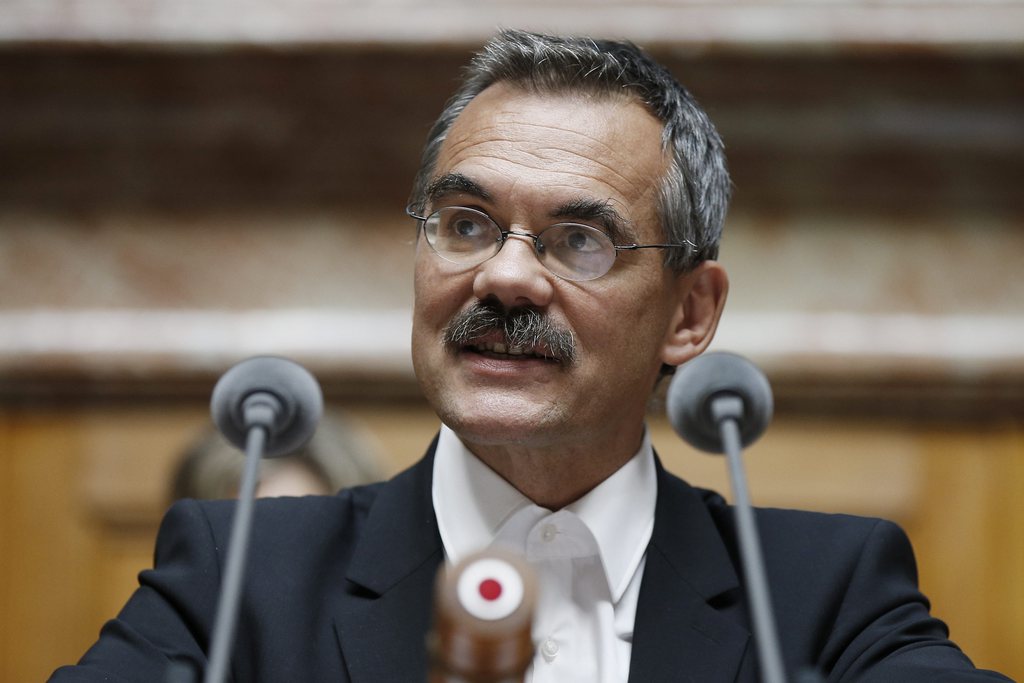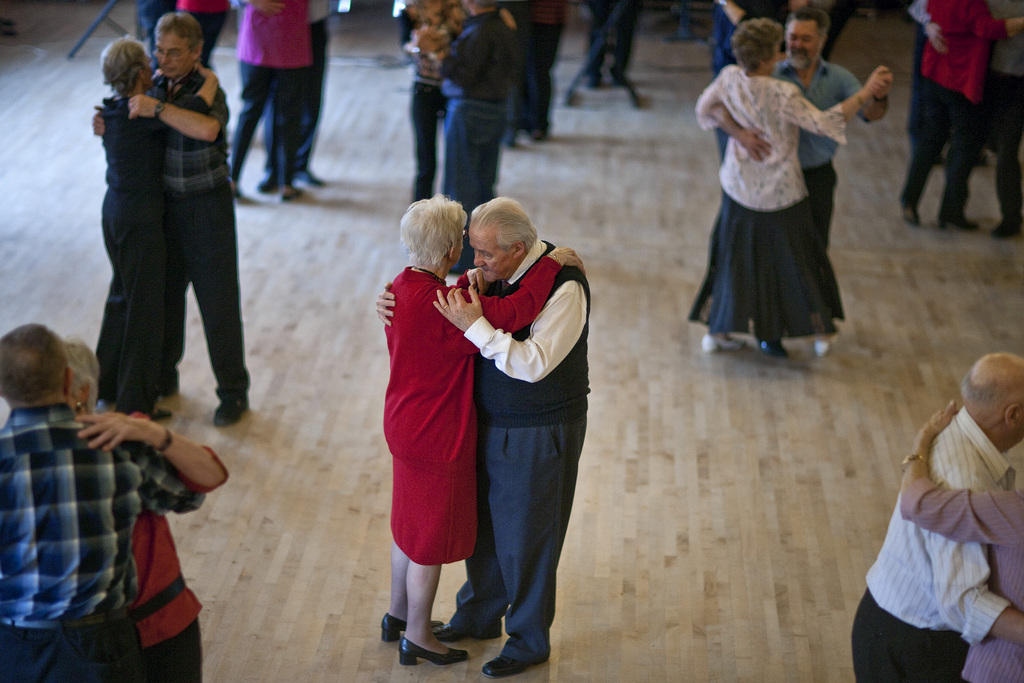
Meeting physical and mental needs

Jean-François Steiert of Fribourg has a long history as a patient advocate and sees provision of healthcare to the ageing population as a major challenge.
In 2008, Steiert submitted a motion asking the government to develop a national strategy on dementia. Although the request was initially denied, at the end of 2013 the government released its Dementia Strategy 2014-2017.
In 2009, the costs associated with dementia were CHF6.9 billion ($7.7 billion). “When you talk about cancer and other pathology, between 80% and 90% of the necessary money goes to medications, to doctors, to physicians, to hospitals,” says Steiert. “With dementia you have another priority: 90% is time. And we have a real problem with [there not being] enough time and competence for aged people.”

More
Swiss politicians tackle the issue of ageing
Many dementia patients are initially cared for by their families. Later, when the caregiving becomes too great a burden, they make the transition to nursing homes. “We have to reflect about nursing, and how to ensure that people can stay at home as long as makes sense,” Steiert says.
Not only is the number of old people with mental and physical challenges increasing, but there is a shortage of health care professionals to care for them. It’s necessary to make the health professions more attractive and to educate more nurses and more doctors who can provide general medical care, says Steiert.
Changing the structure of medical studies is one option. “Today with the selection system to enter in medical faculties, you probably are not selecting the right people. Because you are selecting people with very theoretical competences. In mathematics, in chemistry, and other similar types of competences,” says Steiert. “And the question is how to help to reorient in the interests of society.”
“Where do you see yourself at age 75?”
Jean-Francois Steiert: “At home, of course! As long as possible. I think in 25 years we’ll have more intermediate forms of living: alone at home, with your wife or your husband at home, in a home with 200 people, or in a hospital. We’ll have different forms, mixed forms of living. I think that the future is there.”

In compliance with the JTI standards
More: SWI swissinfo.ch certified by the Journalism Trust Initiative



























You can find an overview of ongoing debates with our journalists here . Please join us!
If you want to start a conversation about a topic raised in this article or want to report factual errors, email us at english@swissinfo.ch.